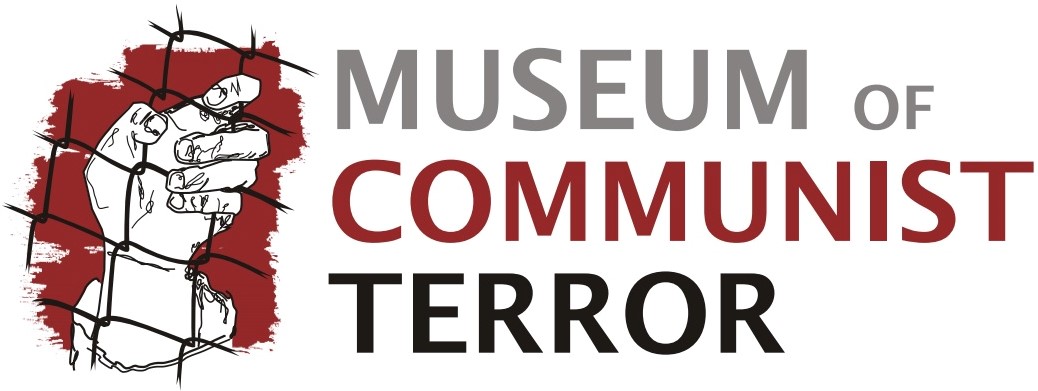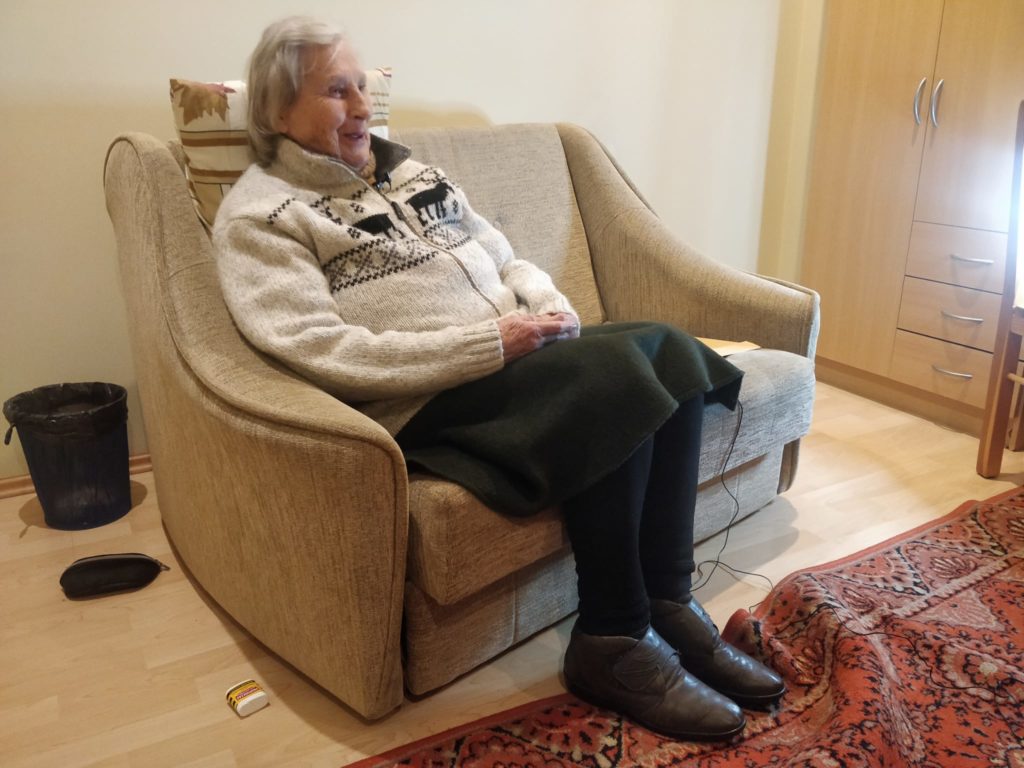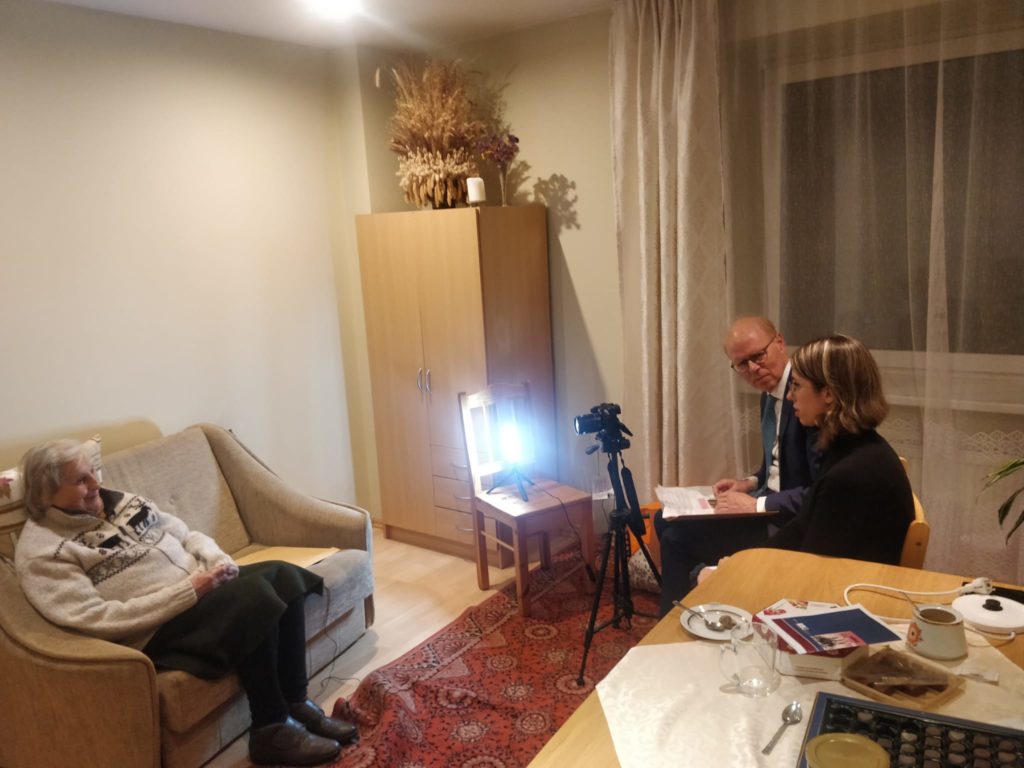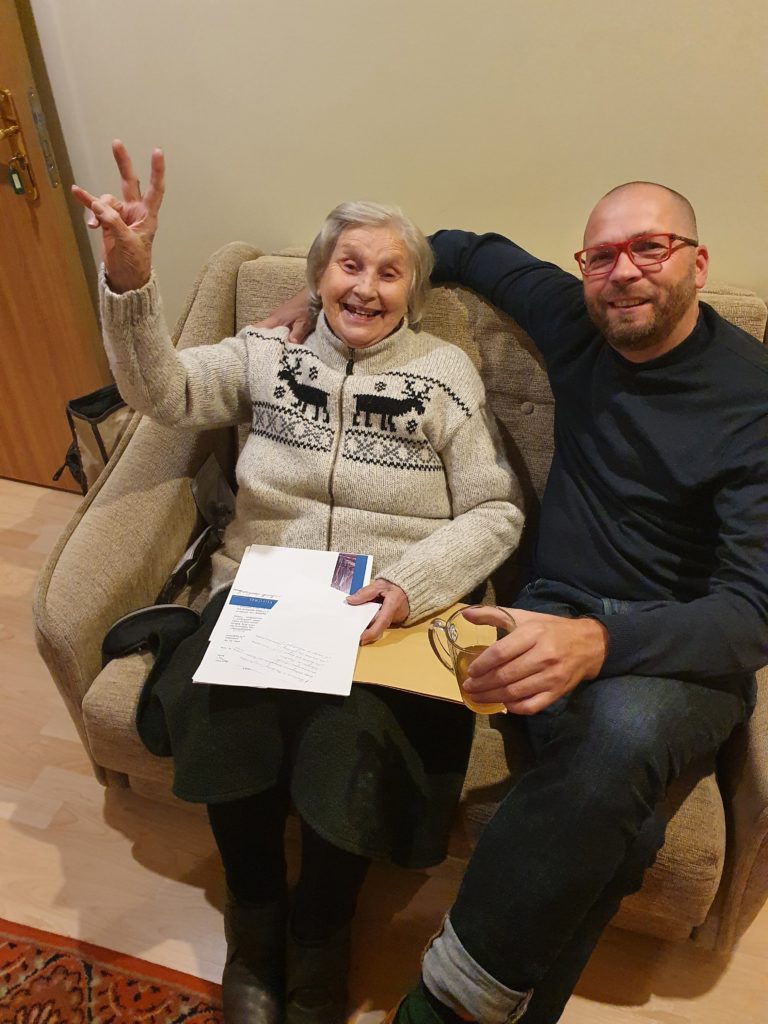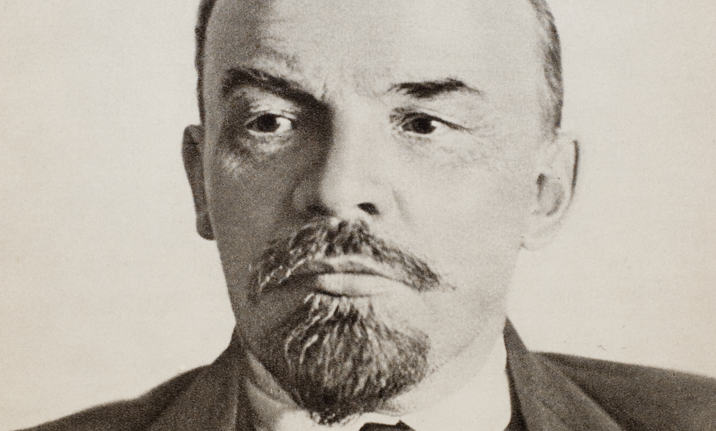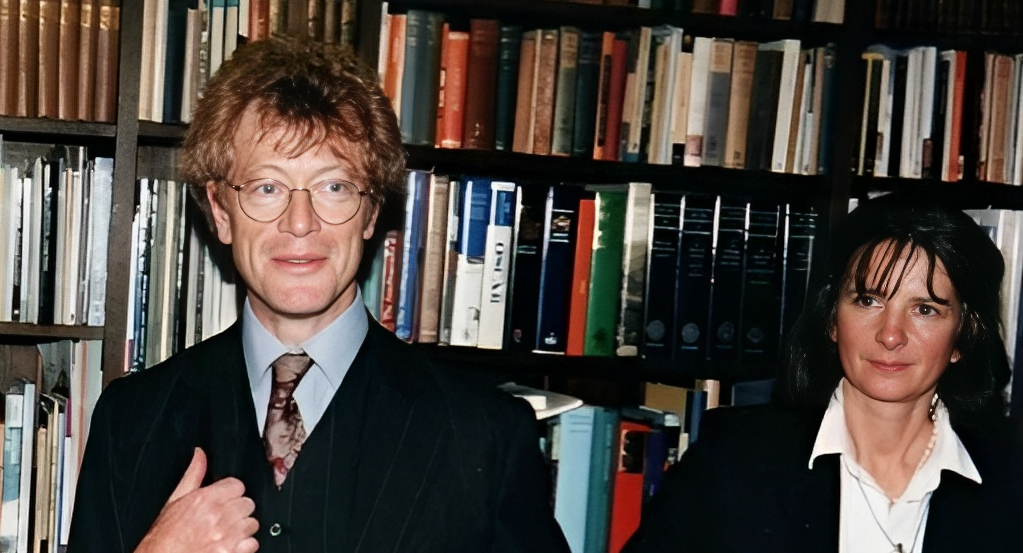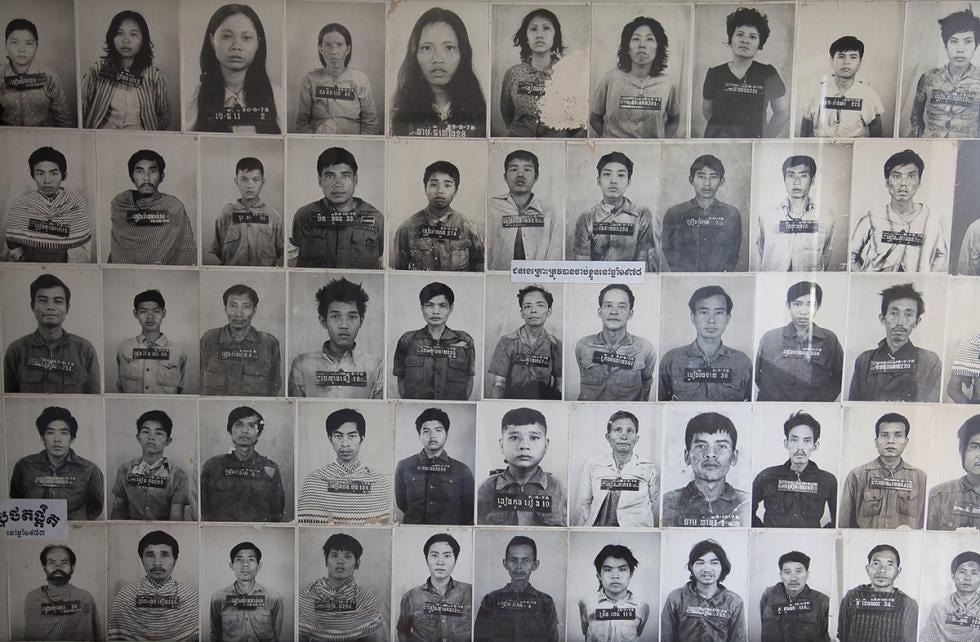In the past five years I’ve met many people who’ve had direct, sometimes horrific, experience of communist rule. But I was more excited about doing a recent interview than I had been about any of the previous ones. It was going to be with a nun in a convent in Lithuania.
I had imagined the scene: we would enter a large, gloomy, medieval stone convent. We would be cautiously admitted into a cavernous hallway and then ushered by a silent nun into a small, bare room for visitors. Then, dressed in black nun’s garb, Sister Nijolė Sadūnaitė would enter the room, head bowed, and sit in a plain wooden chair, her face lit only by a candle.
When the day arrived we drove out of Vilnius but then, to my horror, the taxi pulled up in the drive of an ordinary suburban house.
We went up some steps and found ourselves in a brightly lit hallway with apricot walls and not a gloomy medieval stone in sight.
A short, elderly lady in a woolly cardigan with a wide face and a grin stretching all the way across it ushered us into a similarly brightly lit room with an old-fashioned sofa and the sort of table you could have bought at Ikea.
Was this run-of-the-mill house really a convent? Apparently so. Five nuns live there and each of them has a separate room or cell upstairs.
The interview was not as I had expected, either. I was there to hear about all the terrible things that Sister Nijolė had experienced at the hands of the KGB in punishment for her part in publishing and distributing an illegal newssheet called Chronicles of the Catholic Church in Lithuania. This was a unique piece of samizdat in the communist world because it described in detail the many ways in which the communist authorities repressed the church. What’s more, it managed to do this for 17 years, defying the authorities’ best efforts to shut it down. Sister Nijolė was one of those arrested for her work. She was condemned to three years in prison and another three in exile. Those years must have been grim and frightening. But that’s not the way she told it.
I asked whether she had been tortured and then listened with increasing incredulity as she chatted happily in Lithuanian, smiling away. ‘They asked me “Who is the chief editor of the Chronicles?” I said: “I will tell you who is the chief editor.” I saw the sparkles in their eyes,’ said Sister Nijolė. ‘They were rejoicing that I would turn him in. Then I told them: “You are the chief editors! You do the crimes and we just write them down. We are just the secretaries!”’
She was condemned to three years in prison and another three in exile. Those years must have been grim and frightening. But that’s not the way she told it
After she had been taken to the main KGB prison in Vilnius, Sister Nijolė found herself with other prisoners in the exercise yards, under close supervision. No talking was permitted. ‘Suddenly I thought: “There are all these people and some of them have families and, for sure, their destiny here is more difficult than mine so I wanted to cheer them up and help them”,’ said Sister Nijolė. ‘I started singing the song that goes: “I hate the red flag! I love my own flag: yellow, green and red!” They [the guards] started shouting at me: “Silence! Keep silent!” And as they came down to take me away, I was still singing with a loud voice and everyone cheered up. I was happy.’
Sister Nijolė started singing the song to me and laughed as she told the story, as if it were a schoolgirl prank. And that might have been all I ever learned about the episode if I hadn’t persisted in questioning her. It emerged that, as punishment, she had not been permitted to go into the exercise yards for six months. Half a year in a cell without going outside at all and she was not even going to mention it. This is not just a stiff upper lip. It is something beyond that.
At her trial, which was held in secret, she was allowed to address the little court and started with the words: ‘I would like to tell you that I love you all as my brothers and sisters and, if need be, I would give my life for each of you.’ She then admonished the KGB officers for their bad behaviour.
As was common in KGB prisons, a stooge was put in her cell in the hope that Sister Nijolė would reveal something to a fellow prisoner that she would not tell her interrogators. The name of a colleague, perhaps? But the KGB plot backfired because instead of telling the stooge her secrets, Sister Nijolė taught her how to pray. The stooge was replaced.
If you’re minded to believe in divine intervention, it could easily seem as if God kept an eye on Sister Nijolė. She was sent to exile in Krasnoyarsk, thousands of miles away in Siberia, and for the journey the KGB put her with eight male alcoholic criminals, probably with the idea that their barbarity might break her down. ‘They were talking of me as their prey and who I would belong to in Krasnoyarsk,’ said Sister Nijolė. But when they arrived, a stranger unexpectedly offered her a job as a cleaner in a school, so she stayed there instead of being sent off into the cold wastes of the taiga with the men.
A few years later, she was out of prison but hiding from the authorities, moving from house to house. At one point she was staying at a home outside Moscow which happened to be near the dacha of a KGB general. ‘I saw him go by on skis one day and waved to him,’ she said. Cue more happy laughter.
When funds allow, I and my colleagues at the Museum of Communist Terror edit the interviews we record and put them on the website.
Sister Nijolė’s interview presents us with a problem. She makes her imprisonment sound like a jolly adventure.
The curious thing is, the other two people I interviewed who had also worked on the Chronicles of the Catholic Church in Lithuania – a priest and a cardinal – were also remarkably cheerful. It is strange that, in the modern world, people who have never had terrible experiences are often so anguished, whereas these men and women who have been through real horrors are full of joy.
This article first appeared in The Spectator online on 14/11/2022.
More Articles

